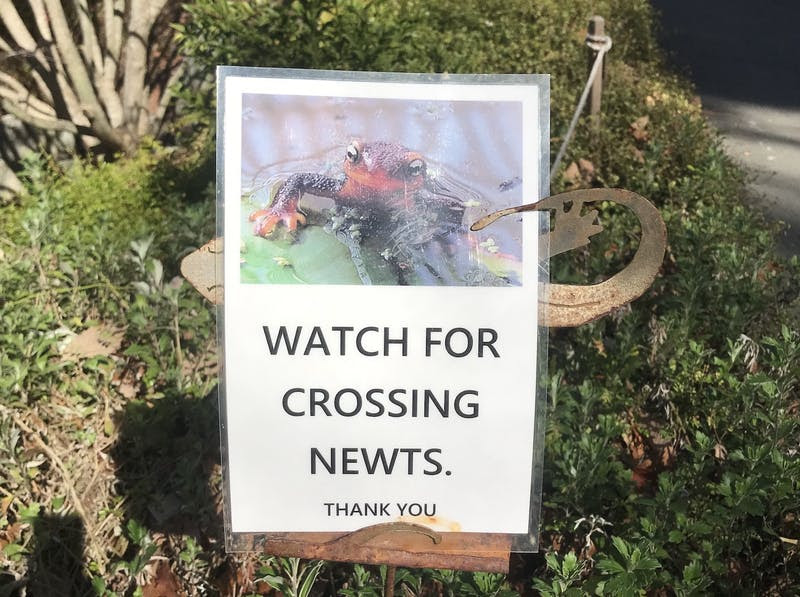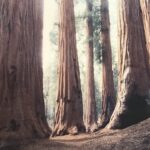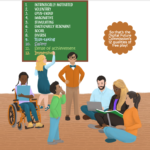
I know I’ve taken a good trail when I pass a sign such as this one. Longtime readers know I have a personal commitment to do my part to restore the word newt and a host of other nature words (e.g., acorn, adder, ash, beech, bluebell, buttercup, catkin, conker, cowslip, cygnet, dandelion, fern, hazel, heather, heron, ivy, kingfisher, lark, mistletoe, moss, nectar, newt, otter, pasture, willow…) to frequency in the daily language of children.
So I am thankful to the UC Berkeley Botanical Garden where I walked this morning with a dear friend for doing their part to strengthen the human-newt bond and frequency in daily language. I am passing it on.
I have experienced a rough few weeks witnessing via various online news outlets the profound suffering on the ground in Ukraine and radiating into all the bordering countries, as I am sure you and your families have as well. If nothing else, it has highlighted how little I know about Ukraine and all the countries that neighbor it, from geography to politics. The war has been a crash course in geopolitics, all too literally.
With fear and dread animating my amygdala, I have had a constant eye on the live Ukraine feeds in The Guardian and the NYT as well as countless newsletters and journals I subscribe to. I don’t recommend the amygdala/live feed coupling. But reading is my preference to watching or listening to newscasts—reading a wide range of articles with viewpoints from different people let’s me seek a broader and hopefully more systemic framework and come to my own conclusions.
Are you having conversations about the crisis in your homes and in your classes if you are an educator?
For older kids/students, Pulitzer Center has created a lesson plan, Contextualizing the Crisis in Ukraine. Parents will find some useful questions to use as catalysts in a focused conversation, and educators will find links to background reading, discussion questions, and extension activities.
Next post I will share a book to support conversations about war with younger children. I am still in the process of reviewing it.
War is one of the most challenging topics to talk about with our children, teens, and students. Good resources can help us.
Meanwhile…
I have taken heart in the inspiring efforts of two brothers featured in the film, All That Breathes, winner of the World Cinema Documentary Competition at the 2022 Sundance Film Festival. Brothers Saud and Shehzad have saved more than 20,000 black kites over the last 20 years with a veterinary operation they run in their basement. Astonishing what two committed human beings can do. The film is not currently available—I will be watching for it.
“You don’t care for things because they share the same country, religion or politics. Life itself is kinship. That’s why we can’t abandon the birds.”
Best family film: Lunana: A Yak in the Classroom. The link is to a review on the NYT. The film gives a unique spin to “remote learning.” Make time for it.


